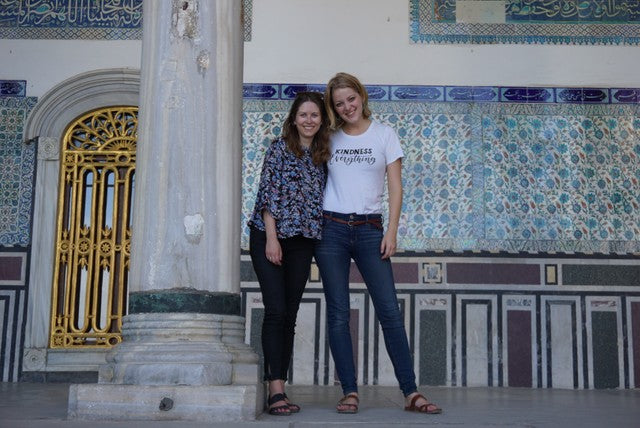The fair trade movement has a whiteness problem.
Most fair trade-verified organizations are led by white people, primarily women. Fair Anita, as you likely know, is no different. For the last 5 years, our leadership team has been two white women, Anna and myself (pictured).
I believe the whiteness of fair trade is rooted in a long history of colonialism and white savior complex. And while we are working hard to change the narrative about what it means to be a fair trade company (more on that later), we cannot ignore the grounds on which we work and the ways we've unjustly benefited from systems of white supremacy.
Yup, it's not comfy to talk about, but it's long overdue.
So, in the spirit of fair trade transparency, here we go.
Leadership: 2 white women
Extended Staff: 42% (5) women of color
Contractors: ~35% women of color (varies)
Of course, the leaders of each of the 19 cooperatives we partner with are local to their global communities.
And we're proud that we have a racially, economically, and geographically diverse customer base-- thank you, crew.
We must address anti-racism here in our own team and local community while continuing to fight for equity for our partners around the world. This will make us better partners to our artisan team members, too.
Here's what we're doing about it:
1. Paying for anti-racism courses for business leaders, especially. Reach out at info@fairanita.com if you're interested in these resources!
2. Starting a staff book club and discussion, focusing on anti-racism. First up is Why I'm No Longer Talking to White People About Race, as voted on by the staff.
3. Continuing donations to organizations that fight for equity here in the Twin Cities.
4. Re-booting our anti-racism trainings for white allies. (We hosted 4 of these trainings in 2017 so we could learn alongside our customers: time to bring them back! Details coming soon!).
5. Giving our staff paid time to focus on anti-racism work, especially with all that's currently happening in our Twin Cities community.
6. Committing to furthering conversations about whiteness with our FTF community.
7. Plan on us being more vocal about these topics on our social media platforms in the future.
Happy to accept other suggestions as we work to improve.
We hope you stay with us on this journey so we can learn and grow together.

